Liam Barnes
BBC News, Nottingham

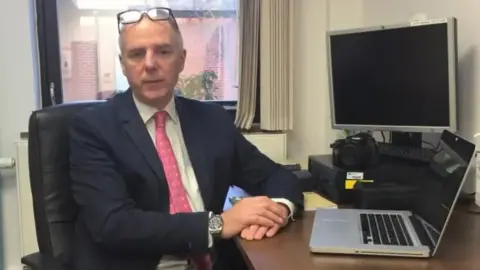 YouTube
YouTube
Jonathan Peter Brooks was arrested on the day of the stabbing and appeared in court days later - but has only just been convicted
More than four years after he stabbed his colleague, plastic surgeon Jonathan Peter Brooks has been found guilty of attempted murder.
On Monday, the 61-year-old was convicted over the 14 January 2021 attack on Graeme Perks in Halam, Nottinghamshire, which a court in Loughborough heard could easily have been fatal.
It can now be reported that Brooks was never seen by the jury, repeatedly refusing to engage with the trial.
In a legal saga stretching from his arrest, during a coronavirus lockdown, to his conviction, a judge outlined the "extraordinary" case, labelling Brooks a "highly intelligent" man who used hunger strikes and sacking his lawyers as tactics to try to manipulate the system to avoid justice.


Police were called to the Old Vicarage on the morning of 14 January 2021
Why did the trial take so long?
Brooks was arrested on the day of the attack, and appeared in court four days later.
He dressed in camouflage gear and went to Mr Perks's home equipped with petrol, matches, a lighter, knife and a crowbar, but insisted all the items had been "stored in his garage and had been acquired for innocent purposes".
His trial was told he smashed conservatory doors to spread petrol around the ground floor of Mr Perks's house, and then stabbed him in the abdomen.
Brooks was facing an online NHS disciplinary hearing, which started on 11 January 2021.
The court heard the burns specialist "hated" Mr Perks, who was a witness against him in those disciplinary proceedings.

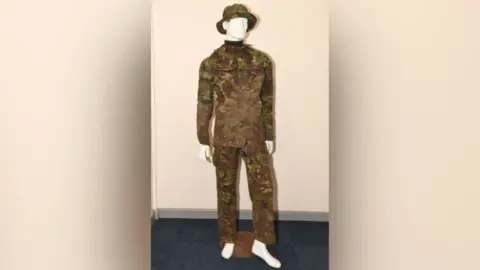 Nottinghamshire Police
Nottinghamshire Police
This camouflage suit was found after the attack
A trial originally began in July 2022, but the jury was discharged the following month after Brooks was admitted to hospital, suffering osteoradionecrosis - a medical complication of radiotherapy, which required surgery.
This set in train a long chain of legal delays, with numerous occasions when hearings were listed but Brooks refused to turn up, forcing his case to be relisted and impacting on other court hearings - as barristers and judges had to move around their workloads.
The trial has been listed on "no fewer than nine occasions", and the latest got under way despite Brooks sacking his then legal team with one day to go - the fifth time Brooks had dismissed one or more of his lawyers.
Brooks had also embarked on a hunger strike 11 days before his trial was scheduled to start.
Judge Edward Pepperall said this was not new.
"I identified no fewer than eight occasions since his arrest in 2021 when Dr Brooks had used hunger strikes or the threat of some other self-harm to achieve some advantage whether within the prison estate or in hospital," he said.

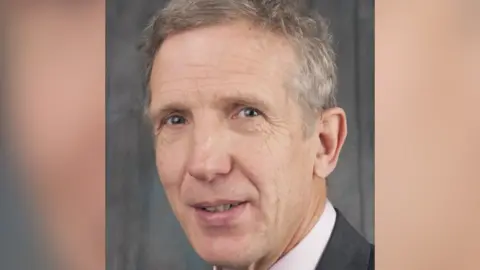 BAPRAS
BAPRAS
Graeme Perks survived "because of quick action and amazing surgical skill", a court in Loughborough heard
Why was Brooks not co-operating?
Brooks claimed he was not medically fit to stand trial, that accommodations were not being made in order for him to attend trial, and that the trial was unfair.
By the time another trial was due to take place, he was left in the unusual position of acting as his own legal counsel.
The dangers of defendants representing themselves without legal support are well-documented, and with Brooks also indicating a refusal to engage - while repeatedly claiming he would rather die than be wrongfully convicted - the court was faced with trying to arrange a trial in which an unrepresented defendant was not likely to turn up.
Combined with Brooks's hunger strike, it presented the possibility that even if he was fit at the start of the trial, his condition could deteriorate during the weeks it was scheduled to run, and could mean a second trial would not reach a conclusion.

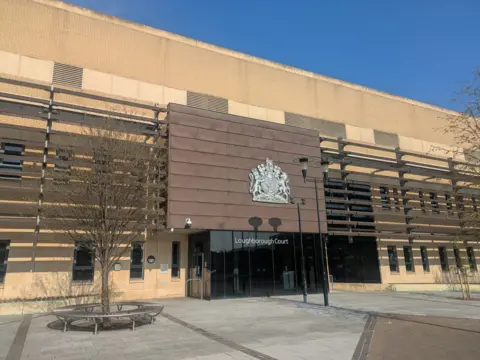
Brooks's trial was moved from Nottingham to Loughborough due to the defendant's requirement for a wheelchair
Were allowances made for Brooks?
In short, yes.
The hunger strike meant the defendant had become increasingly weak, which led to the case being moved to Loughborough due to the defendant's new requirement for a wheelchair, something the original court could not accommodate.
On 3 March this year, he did not appear for the slated start date, and the prosecution asked to continue the trial in the defendant's absence.
Judge Pepperall came to a decision about whether it was fair for the trial to go ahead, with his ruling made on 6 March, a copy of which was sent to the defendant.
In the 30-page document, he addressed the concerns prompted by Brooks going on hunger strike, and set out how he would ensure any trial would be fair.
"It is not too late for [Brooks] to change course and let the court know that he wishes to attend his trial... that he has already stopped his hunger strike, and that he is accepting all reasonable treatment so that he can in time recover sufficient health to put his case to the jury," he said.

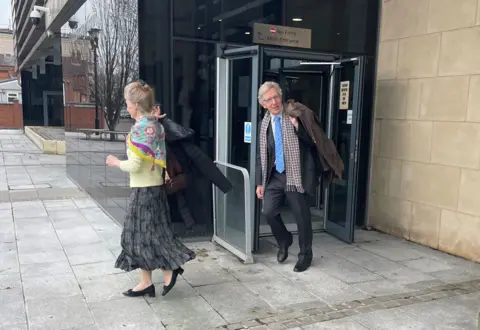 Matthew Cooper/PA Wire
Matthew Cooper/PA Wire
Mr Perks, who had recently retired at the time of the stabbing, gave evidence in court
What happened during the trial?
Tracy Ayling KC led the prosecution case against Brooks, who remained absent while also acting as his own legal representation.
The situation was explained by Judge Pepperall to the jury, when he warned them not to take the defendant's absence as any sign of guilt.
Evidence was then heard in the usual way, but on 11 March the judge said he had received a letter from Brooks, who was being held at HMP Bedford, in which he further objected to the trial continuing without him.
A three-page response gave short shrift to Brooks's latest protests.
"Dr Brooks cannot refuse to engage with both the court and his lawyers, and then complain that he was not properly kept updated as to his case," he said.
The trial continued, and on 24 March Stephen Leslie KC was brought in to cross-examine Mr Perks - a measure made to provide balance to the prosecution case.
On 25 March, a new five-page ruling was made to allow Brooks to appear via video-link from prison should he so wish, rather than go in person.
In the ruling, the judge spoke of Brooks's "sporadic" engagement.
"On no fewer than 13 occasions, he has declined to attend court, sometimes even when only required to appear by prison link, without good reason," he said.
Addressing the behaviour of the defendant, the judge added: "Dr Brooks has deliberately made himself ill in order to seek to manipulate the court process and prevent his trial from proceeding. Such conduct was the voluntary decision of a well-informed medical man with capacity."
Following the ruling, the defendant continued to complain about his condition and the trial, and after assessment from doctors confirmed he was fit to attend but remained absent through his own choice, the prosecution case concluded.

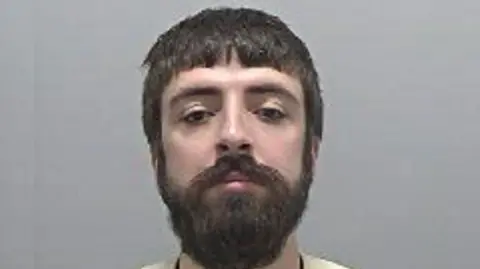 Hertfordshire Police
Hertfordshire Police
High-profile sentencings - including triple murderer Kyle Clifford - saw defendants refuse to appear in the dock, and as a result the prime minister has promised to give judges more power to compel criminals to come to court
During a debate on Brooks's fitness during the trial, Ms Ayling said her prosecution team "has anticipated" such requests being made by the defendant.
"Yet again he's attempting to put off the trial," she said. "He is deliberately manipulating the court and voluntarily absenting himself."
Brooks did not turn up for his own defence, which was scheduled for 27 March, but on 1 April he finally made an appearance, addressing the trial in the absence of the jury via video-link from HMP Norwich, where he had recently been transferred.
He requested a four-week adjournment so he could prepare his case, but he refused the offer of a 48-hour extension, ending up in tears as he said he felt he could not accept the judge's offers to accommodate a late speech from him.
By the time the jury was brought in that day, Brooks had gone back to his cell, and so he was once again absent when the judge summed up the evidence.
What can the courts do with defendants who will not engage?
The criminal justice system stresses the importance of not only there being a fair trial, but there being seen to be a fair trial, so even though Brooks refused to co-operate, measures were taken to ensure due process was followed.
For Brooks, a lawyer was brought in to challenge witness evidence, and while legal rulings were not discussed in front of the jury in order to avoid prejudicing their views, they were discussed before the press, so the legal discussions could be reported after trial.
Ultimately, courts have to give the opportunity for defendants to appear, and if they refuse they must ensure the process is still fair, even if that leads to long delays.
The Crown Prosecution Service said the trial "was extremely unusual".
"The lack of participation meant that straightforward and non-controversial evidence could not be agreed as would usually happen when a defendant is present and represented," a spokesperson said.
"This meant that some witnesses had to give evidence to the jury and have statements read out in full that would otherwise have been treated as agreed facts."
A number of recent sentencings - including Kyle Clifford and Axel Rudakubana - saw defendants refuse to appear, and as a result the prime minister has promised to give judges the power to make criminals appear in the dock.
Judge Pepperall said that he would write to the governor of HMP Norwich, where Brooks is currently held, to request that he attend in person for his sentencing hearing, which is due to be held on 3 June.

 German (DE)
German (DE)  English (US)
English (US)  Spanish (ES)
Spanish (ES)  French (FR)
French (FR)  Hindi (IN)
Hindi (IN)  Italian (IT)
Italian (IT)  Russian (RU)
Russian (RU)  4 days ago
4 days ago
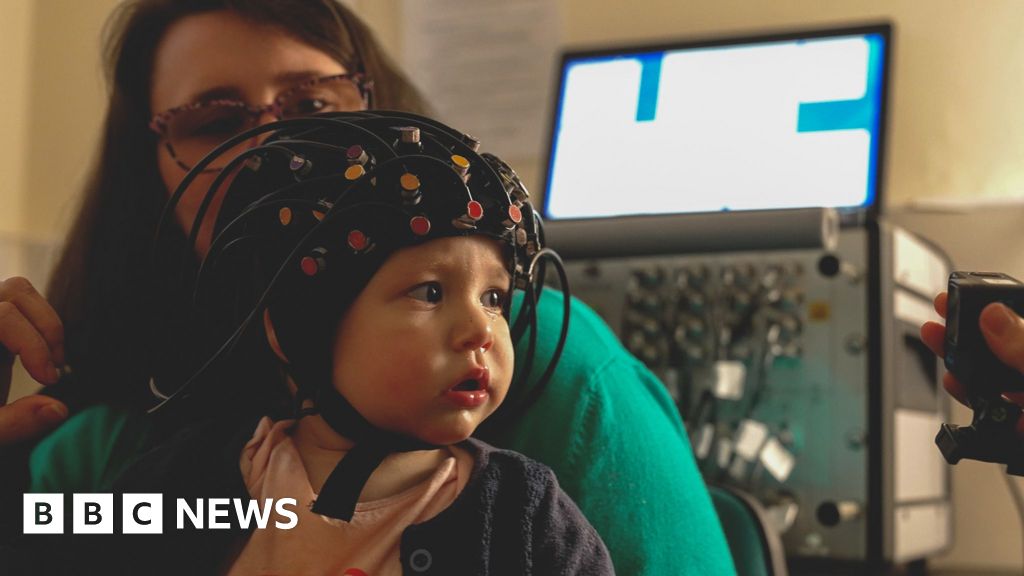
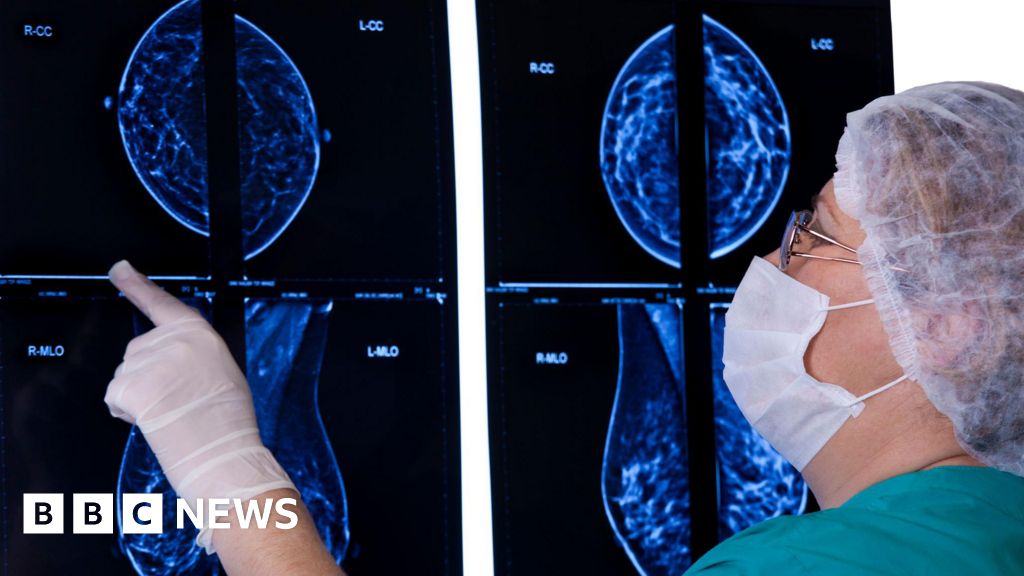
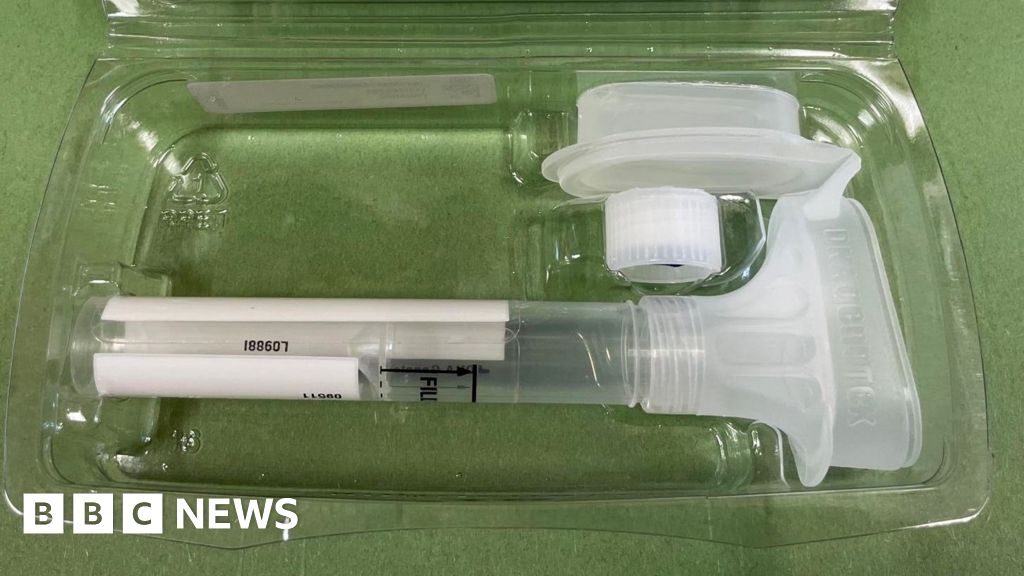

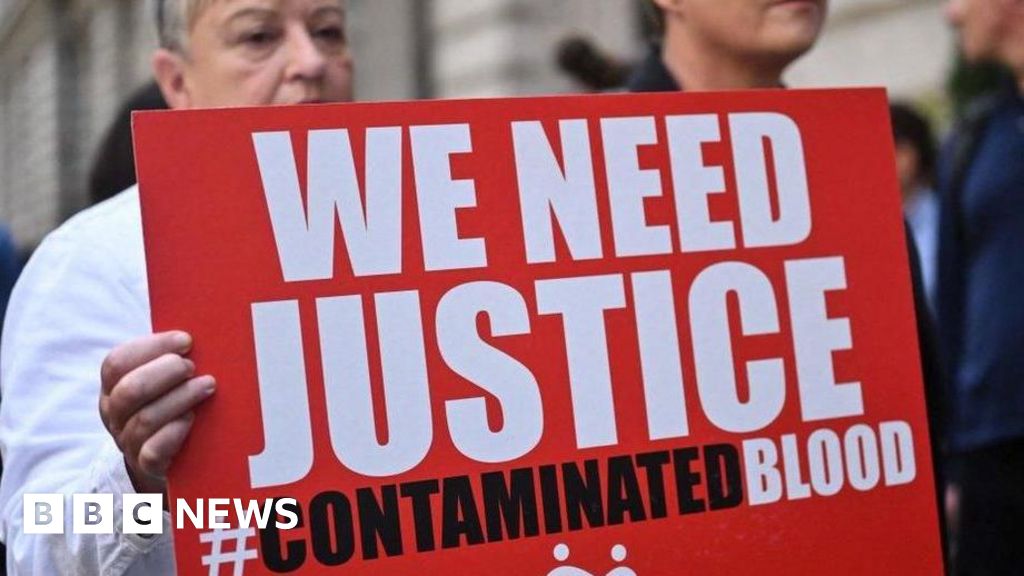
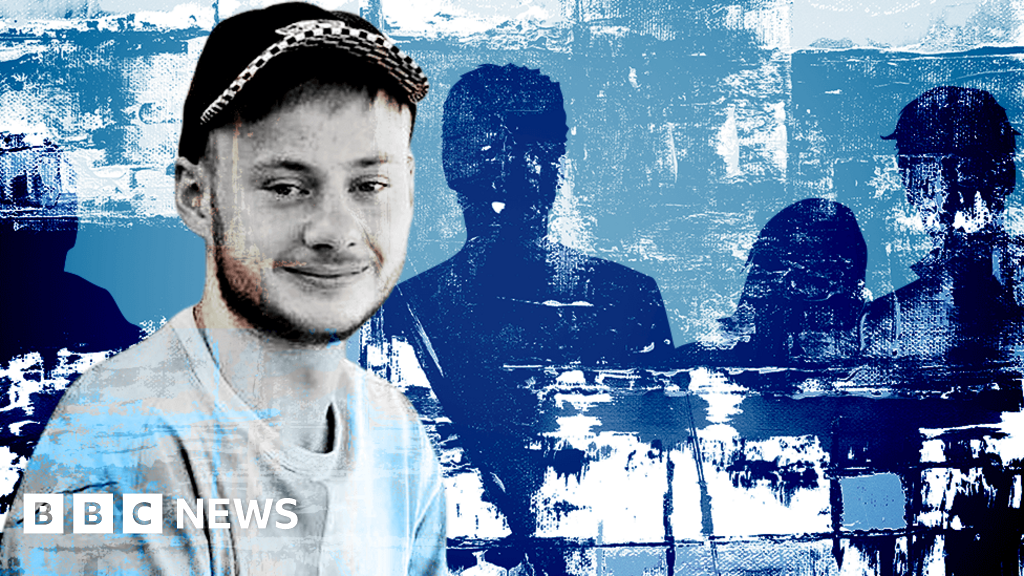
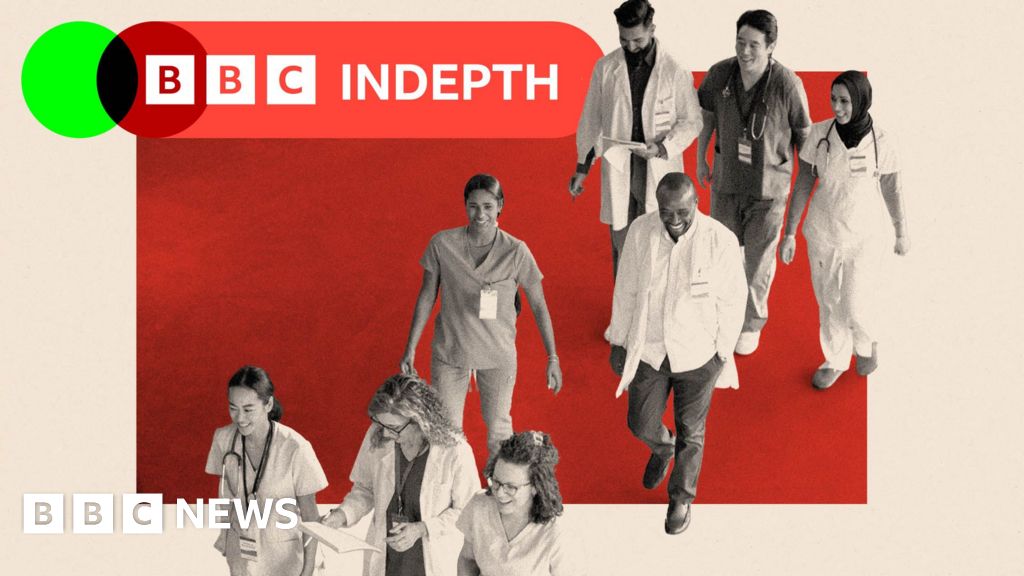
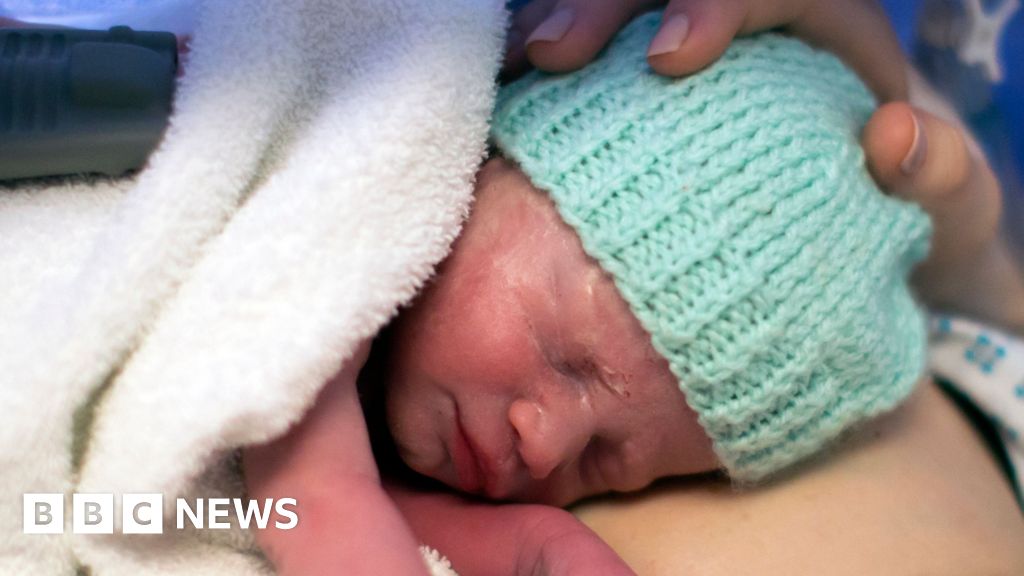

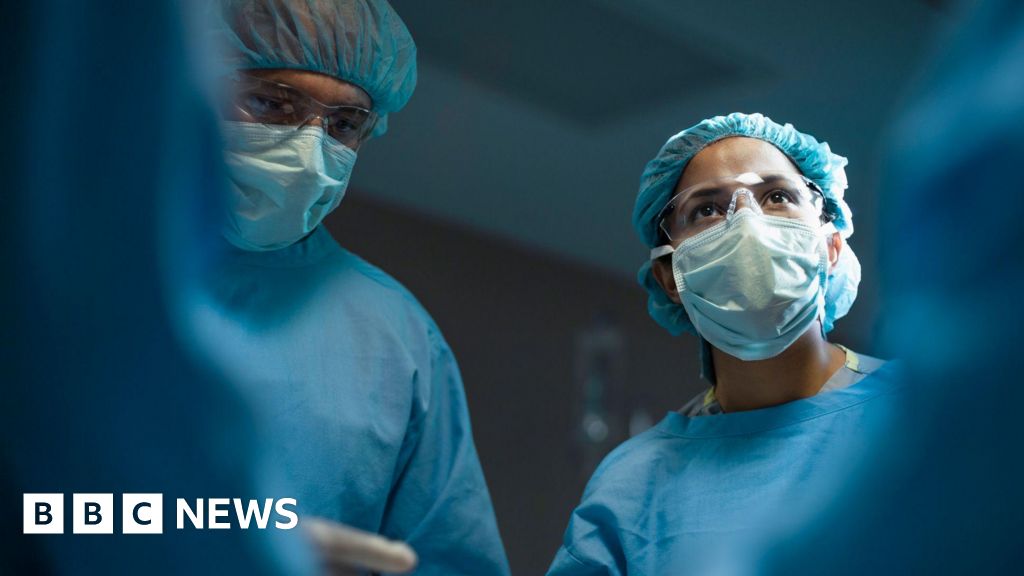

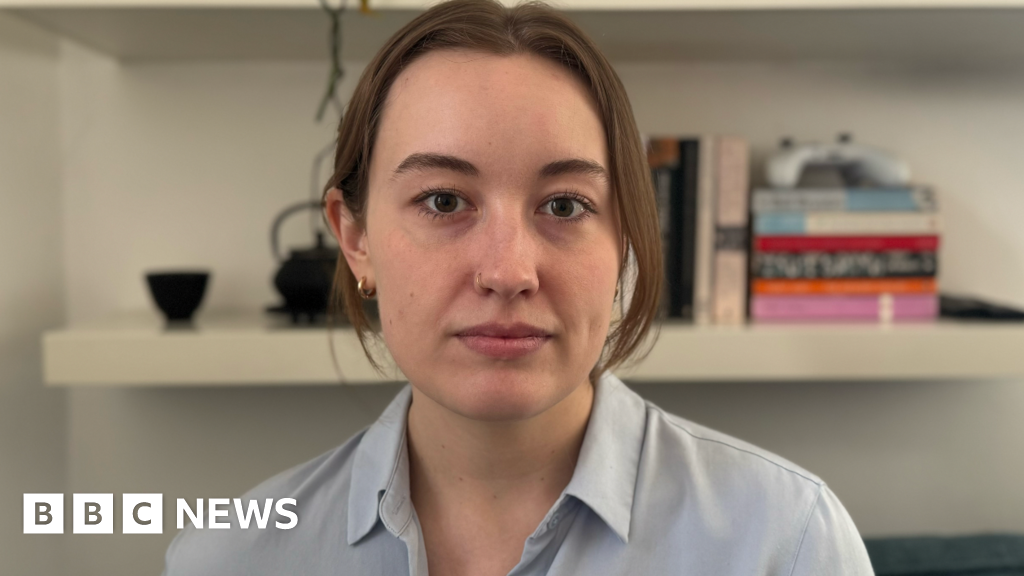







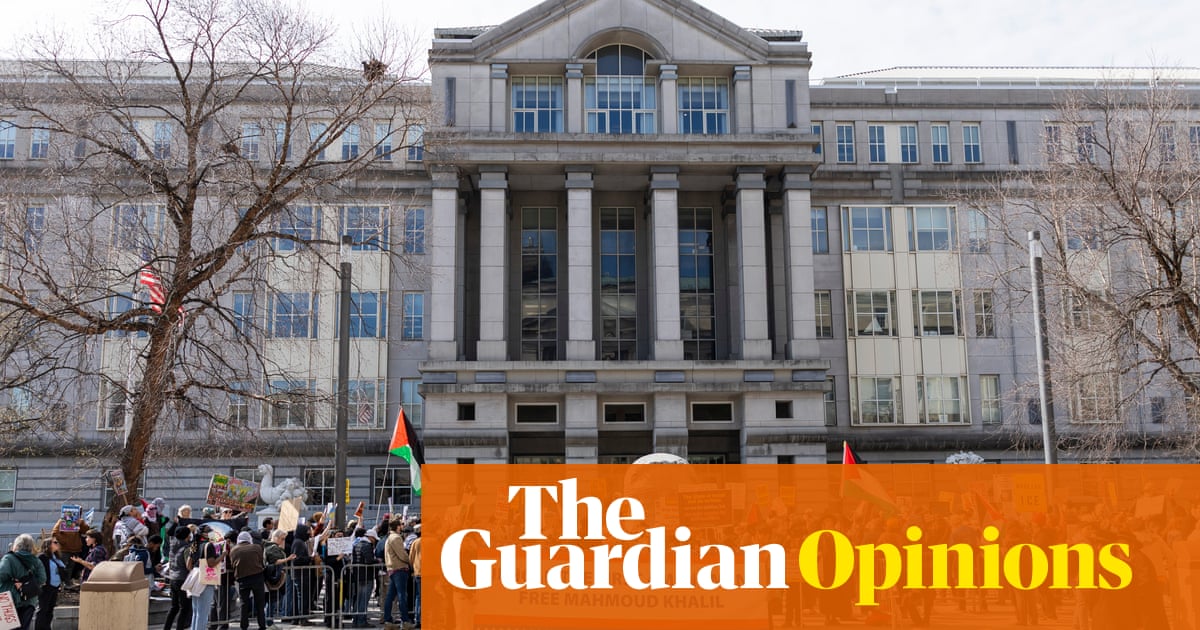




Comments